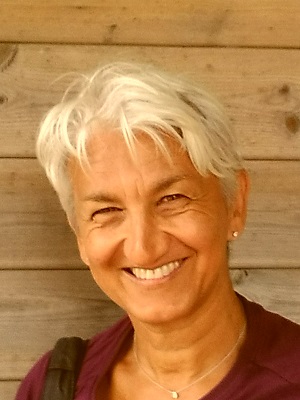About me – Isabelle Oberman
“Life isn’t an easy ride”
After a career as a salesperson and commercial consultant, I finally became a couple and family counsellor in 2005.
Today, I am both a teacher and counsellor.If those different and various professional experiences have certainly shaped the woman I’ve become, my private life as well as the problems encountered in my marriage have led me to question the meaning of ‘couple’ and to focus my therapeutic learning on it.
Looking back, I realize how difficult it has been to find the right therapist, I would even say the right person, the one able to listen with empathy and a caring, neutral, non-judgmental, and balanced approach to both partners; partners who rarely come to the therapist with similar expectations. Couple therapy which uses the principle of triangulation often enables the two partners to rebalance their communication. Working for several years on my own relationships with different therapists and using various approaches taught me that you learn most when practicing on yourself!
The therapist role is to give a voice back to each of the partner and to re-establish mutual listening and understanding but without providing any straightforward or ‘off-the-shelf’ solution.
As a couple counsellor and therapist, I would spend the time together, questioning you, trying to keep progressing with you, all throughout this journey. I do this by following and respecting your rhythm and by leaving all my beliefs, judgements, assertions and prejudices aside.
I will be here to help you:
- Identify and scope what the problems are;
- Articulate them with words;
- Express the pain and the suffering in an environment of trust;
- Recognise the limits and the difficulties of these issues;
- Acknowledge the feelings of the resentments themselves;
- Gradually leave or find the right distance towards the suffering, the crisis, the feeling of ‘dead-end’ in your affective, relational or sexual life.
As couple counsellor, I help the people willing to, individually or in couple, finding their own personal path.
Through the many griefs, tensions and doubts, we will try to unlock the situation, and make a “better outcome” appear to lead the way to any change. If all the steps have been conscientiously taken together a possible denouement will result.
Time and a relation of trust with the therapist are essential in enabling this “better outcome” to come out. There is rarely a quick-fix. What constitutes “better”? Well, this is obviously different in each single situation.
I work in a private practice with adults and young adults, in individual sessions or with couples. There is no perfect timing or age to consult: every period of life brings a new set of challenges, questions, self-doubts or conflicts, new options, dilemmas and new paths. Even in the case of a separation or divorce, talking about it should be possible and is, in my view, helpful and highly advisable.
No, “Life isn’t an easy ride” and better this way!

